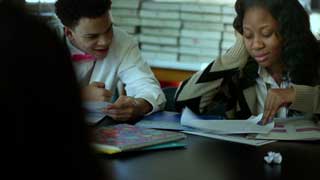The Word from Lansing: Health and Safety Matter for All Michigan Students

Posted August 11, 2017
Please note: A similar version of this column first ran in The Detroit News on July 26, 2017.
The month of August is in full swing. With it comes the sounds of Catholic school teachers and students beginning classes once again. Michigan has over 220 Catholic schools, and each has a significant presence within their respective community and neighborhood.
In recent years, the State Legislature has recognized the presence of Catholic and other nonpublic schools in a number of ways, ensuring every student has a healthy and safe learning environment. These actions are encouraging to see, as all children deserve to be cared for and protected, regardless of where they attend school.
In two of the past three state budget cycles, nonpublic schools were eligible, along with their public school counterparts, to apply for a school safety grant reviewed and distributed by the Department of State Police. Collectively, 39 nonpublic schools — including Catholic, Jewish, Christian and Lutheran schools — received nearly $1.2 million of the $7.5 million available to improve security in their buildings. Additionally, members of both political parties supported an amendment in the final Department of Education budget last year to reimburse nonpublic schools for testing drinking water for lead.
Mindful of the Flint water disaster and situations across the country where tragic violence has occurred in schools, elected officials in Michigan have thankfully kept the health and safety of students — both public and nonpublic — very much in mind.
Yet, regrettably, the momentum toward greater health and safety for all students in this state is encountering legal pressure.
Despite bipartisan efforts for nonpublic schools to access state grant dollars for lead testing and school safety, some advocacy groups are suing the State. The lawsuit aims to prohibit nonpublic schools from being reimbursed for compliance with non-education related health and safety mandates, including fire drills, criminal background checks, vaccination and attendance records, among others. All schools are required to conduct these activities, but nonpublic schools — most of which operate on a minimal budget — are not reimbursed for the expenses as are public schools.
Since the lawsuit was filed, those opposed to the funding have articulated erroneous and misleading information about nonpublic schools, including the perplexing accusation they solely educate wealthy white families. In fact, Catholic educational institutions, motivated by faith, serve families of varying socio-economic backgrounds, races and religious beliefs. According to statewide data provided to the National Catholic Education Association, approximately 19 percent of children educated in Catholic schools were minority students, similar to national statistics. Over 13 percent were non-Catholics. Roughly 72 percent of Michigan Catholic schools participate in federal nutrition programs, providing free meals to low-income students in need.
To help keep expenses down, Catholic parishes, dioceses, and religious orders regularly work with families to make attendance more affordable through scholarship and tuition assistance programs. The presence of Catholic and other nonpublic schools is only possible with the commitment of teachers, staff, and volunteers who welcome all children daily as part of the school family, oftentimes at salary levels well below their public school colleagues.
The reality is that working families sacrifice and save to send their children to a Catholic or other nonpublic school. Similar to public school families, many nonpublic school parents commit to a certain number of volunteer hours, they clip box tops and purchase items online that return a percentage back to the school. Yet as taxpayers who also pay tuition expenses, nonpublic school families are paying twice for state-mandated health and safety programs.
Elected officials in Lansing have taken bold strides of late to better ensure the health, safety and general welfare of all students. Regardless of the outcome of the aforementioned lawsuit, the parents of over 115,000 nonpublic school students in Michigan desire for their children to be treated no differently by the state than the children of their public school friends and neighbors.
